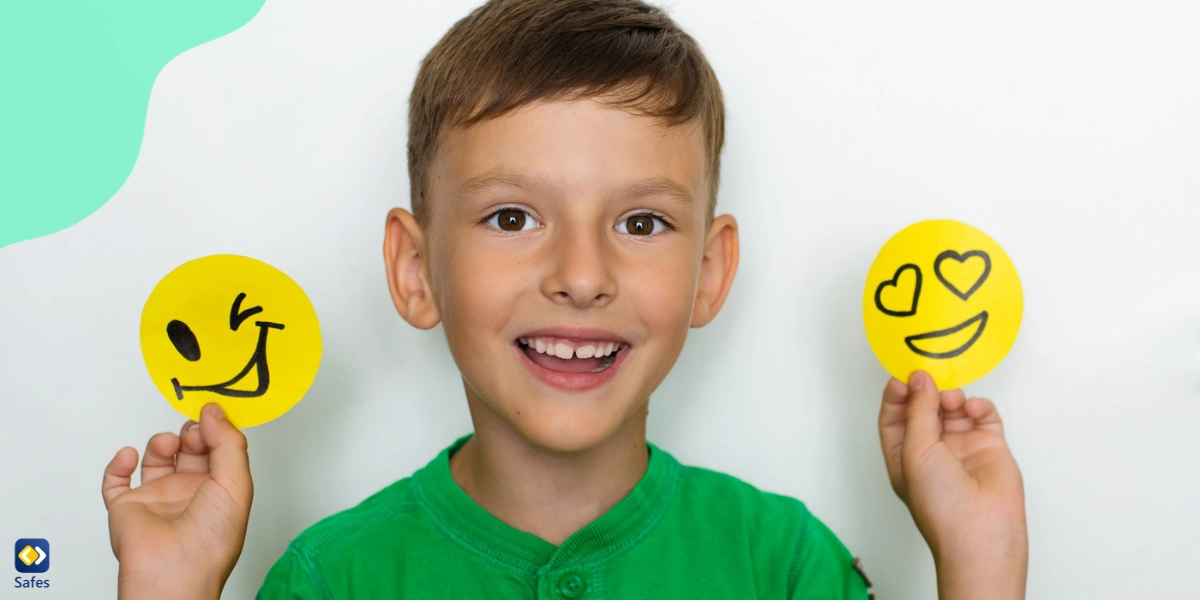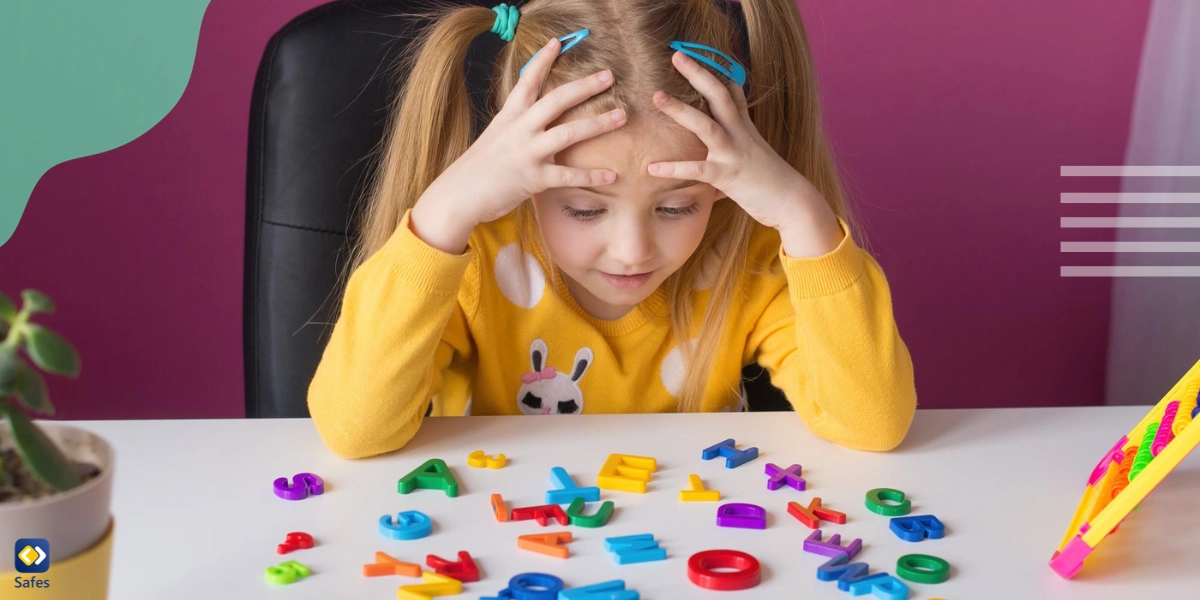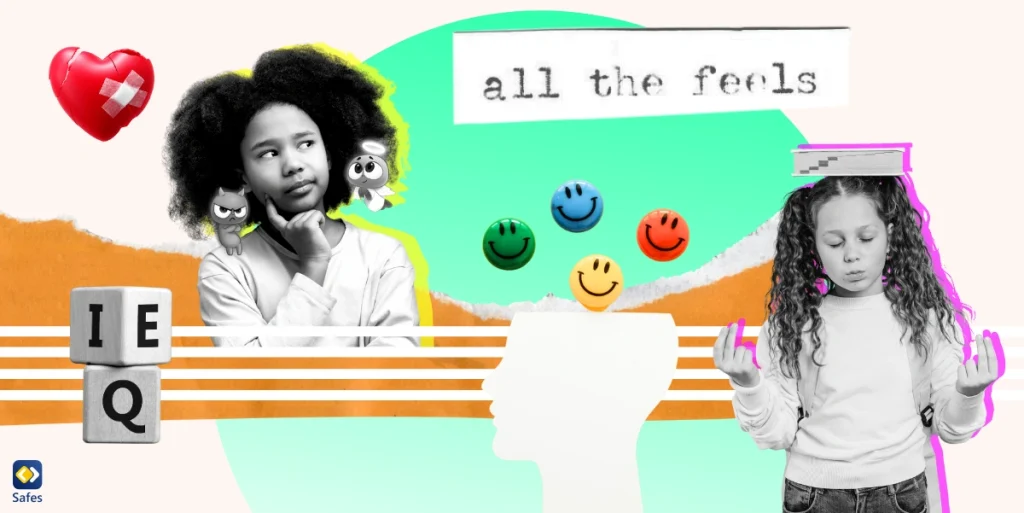Understanding and fostering a child’s emotional intelligence is a foundational component of good parenting. Emotional intelligence is the capacity to understand and navigate one’s emotions, sympathize with others, and form meaningful connections. This blog post delves into the critical factors of how to measure emotional intelligence in children. From detecting indicators to the critical role parents play, we hope to provide parents with insights and solutions for instilling this important ability in their children.
Download and Start Your Free Trial of the Safes Parental Control App
What is Emotional Intelligence?
The ability to perceive, interpret, and regulate one’s own emotions, as well as sympathize with others and manage interpersonal interactions, is referred to as emotional intelligence. It entails promoting emotional awareness and regulation in both oneself and one’s children in the context of parenting.
Consider the following scenario: a youngster is frustrated because of a difficult homework assignment. A parent with high emotional intelligence would identify the child’s emotional condition and respond in a way that acknowledges and treats those feelings. This may entail giving support, advice, and instilling coping methods for dealing with academic stress.
Parents may help their children develop emotional resilience, social skills, and general well-being by nurturing emotional intelligence within the family dynamic. It lays the groundwork for successful communication, conflict resolution, and the development of strong, trustworthy bonds between parents and children. Emotions are too important for us to ignore their development. For example, studies have found that there is a correlation between emotional intelligence and academic achievement in elementary grade school.

Methods of Measuring Emotional Intelligence in Children
We don’t want to get into the scientific jargon of measuring emotional intelligence here for two reasons. Firstly, in psychology, there’s still not one ultimate method for measuring emotional intelligence. Secondly, there’s no need for people other than psychologists to know about those specific methods. Instead, parents should be able to observe several signs to get a sense of their child’s emotional intelligence. Think of these as tools to measure emotional intelligence:
- Self-expression: A child with strong emotional intelligence can articulate their feelings effectively. They may use a variety of words to describe their emotions rather than resorting to general terms like “good” or “bad.”
- Empathy: If a child demonstrates understanding and concern for the feelings of others, it indicates a heightened level of empathy. This might be evident in their responses to friends’ or family members’ emotional experiences.
- Self-regulation: Children with developed emotional intelligence can manage their emotions appropriately. They may employ coping mechanisms when faced with challenges rather than reacting impulsively or becoming overwhelmed.
- Social skills: Look for signs of good social interaction. Children with high emotional intelligence tend to navigate social situations well, forming positive relationships with peers and demonstrating effective communication skills.
- Awareness of others’ emotions: A child who can accurately perceive the emotions of those around them is likely to possess strong emotional intelligence. This awareness can be observed in their responses to non-verbal cues and changes in others’ facial expressions.
- Adaptability: Emotional intelligence includes the ability to adapt to new situations and handle change. A child who can adjust to different environments or unexpected events with relative ease may exhibit developed emotional intelligence.

Role of Parents in Nurturing and Improving Emotional Intelligence
Parents play a pivotal role in nurturing their child’s emotional intelligence by emotion coaching them. Here’s how they contribute:
- Modeling Emotion Regulation: Children are frequently taught by example. When parents properly manage their own emotions, it serves as a model for their children to manage emotions as well. Demonstrating appropriate coping methods for dealing with stress, frustration, and disappointment lays the groundwork for the kid to acquire comparable coping processes.
- Encouraging Emotional Expression: It is critical to create an environment in which children feel secure expressing their feelings without fear of being judged. Parents may foster open communication by actively listening to their child’s feelings and affirming those sentiments.
- Teaching Empathy: Parents may actively educate and promote empathy in their children by assisting them in understanding and sharing the sentiments of others. This might include explaining other points of view, promoting compassion, and highlighting the influence of actions on the emotions of others.
- Problem-Solving Guidance: When presented with a dilemma, parents may help their children solve it while keeping emotions in mind. This entails assisting them in navigating solutions that take into account not just intellectual but also emotional components of an issue.
- Promoting Self-Awareness: Engaging youngsters in emotional talks and fostering self-reflection helps them become more aware of their own emotional states. This self-awareness is necessary for emotional intelligence.
- Setting Boundaries: Setting clear and consistent limits teaches children about the consequences of their behavior for themselves and others. It aids in the development of self-control and emotional management. Boundaries can easily be established by using a parental control app like Safes. This parental control app, available on iOS and Android, grants parents the tools to manage their children’s digital lives effectively. Sign up for a free trial with Safes to access tools and resources that help measure and improve emotional intelligence.
- Creating a Supportive Environment: Emotional security is fostered by a caring and supportive family environment. Children are more inclined to explore and express their feelings when they feel supported, which contributes to the development of emotional intelligence.
Conclusion
Fostering emotional intelligence emerges as a vital role in the parenting experience. We can equip the next generation with critical life skills by focusing on the indicators of emotional intelligence in children and appreciating the critical role parents play. The capacity to communicate emotions, negotiate social relationships, and adjust to different conditions prepares people to be resilient, empathic, and socially proficient. Investing in our children’s emotional intelligence is an investment in their overall well-being and success as parents.
Your Child’s Online Safety Starts Here
Every parent today needs a solution to manage screen time and keep their child safe online.
Without the right tools, digital risks and excessive screen time can impact children's well-being. Safes helps parents set healthy boundaries, monitor activity, and protect kids from online dangers—all with an easy-to-use app.
Take control of your child’s digital world. Learn more about Safes or download the app to start your free trial today!




